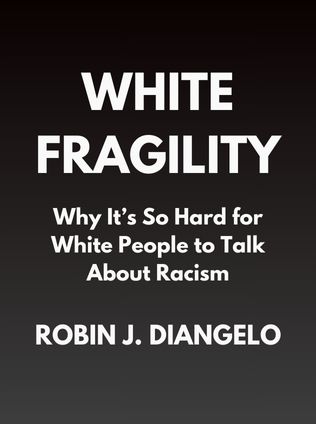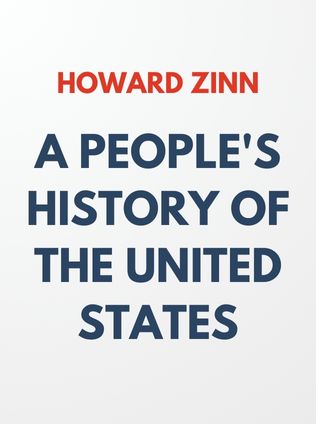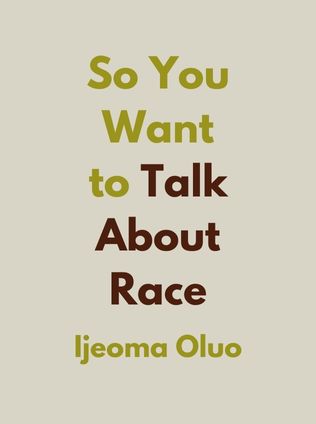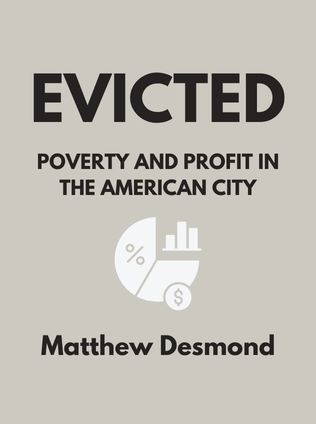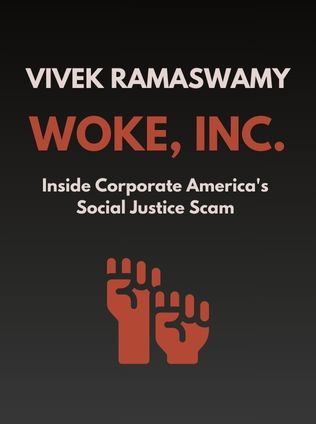
Woke, Inc.
Inside Corporate America's Social Justice Scam
By Vivek Ramaswamy
Published 08/2021
About the Author
Vivek Ramaswamy is a first-generation Indian-American entrepreneur, investor, and political commentator. He graduated from Harvard University with a degree in biology and later earned a law degree from Yale Law School. Despite his academic background in biology and law, Ramaswamy chose to pursue a career in business, where he founded the biopharmaceutical company, Roivant Sciences. His experiences in the corporate world, coupled with his deep understanding of law and biology, have shaped his perspective on the intersection of capitalism and social justice, a theme he explores extensively in his book, Woke, Inc. Ramaswamy is not just a businessman but a thinker who challenges the status quo, urging society to question the motives and consequences of what he terms "Wokenomics."
Main Idea
Woke, Inc. by Vivek Ramaswamy is a profound critique of the fusion between corporate capitalism and progressive social ideals—a phenomenon he labels "Wokenomics." Ramaswamy argues that corporations have co-opted social justice movements, not out of genuine concern for societal issues, but to enhance their own power and profit. This exploitation of wokeness, according to Ramaswamy, is not only hypocritical but also dangerous, as it manipulates public opinion, undermines democratic values, and concentrates political power in the hands of a few corporate elites. The book delves into how corporations use social justice rhetoric to distract consumers from unethical practices and offers solutions to reclaim democratic values and ensure genuine social progress.
Table of Contents
- The Evolution of Woke
- The Mechanics of Wokenomics
- The Consequences of Woke Capitalism
- Solutions to Combat Wokenomics
- Conclusion
The Evolution of Woke
The term woke has undergone significant transformation over the years. Originally, it was a term rooted in Black communities, symbolizing a call to remain vigilant against systemic racism and social injustice. However, as the term entered mainstream culture, its meaning expanded and became more ambiguous. Today, being "woke" is often associated with a heightened awareness of social inequalities and a commitment to progressive values. Yet, this broadening of the term has also led to its appropriation and weaponization by various groups. For some, woke is a badge of enlightenment, while for others, it has become a pejorative term, synonymous with political correctness and cancel culture.
Ramaswamy traces the evolution of woke from a grassroots movement to a powerful tool in the hands of corporations. He argues that as the term became more widely used, its original meaning was diluted, making it easier for corporations to co-opt it for their own purposes. By adopting the language of wokeness, corporations can project an image of social responsibility without making any substantive changes to their practices. This, according to Ramaswamy, is the essence of Wokenomics—a cynical exploitation of social justice for profit.
Wokenomics: The Corporate Hijacking of Social Justice
Wokenomics, as described by Ramaswamy, represents a turning point in corporate strategy. In the aftermath of the 2008 financial crisis, public trust in corporations was severely damaged. To rebuild their image, many companies began to align themselves with social justice causes, embracing what is known as stakeholder capitalism. Unlike traditional capitalism, which prioritizes shareholders' profits, stakeholder capitalism considers the interests of all stakeholders, including employees, customers, and the communities in which the company operates.
At first glance, stakeholder capitalism seems like a positive development. By taking into account the well-being of all stakeholders, companies appear to be acting in a more socially responsible manner. However, Ramaswamy argues that this shift was driven less by a genuine concern for social issues and more by a desire to leverage public goodwill for profit. Companies realized that by aligning themselves with popular social causes, they could enhance their brand image, increase customer loyalty, and ultimately boost their bottom line. This, according to Ramaswamy, is the true nature of Wokenomics—a strategy that allows corporations to profit from social justice while doing little to address the underlying issues.
Critical Race Theory and Stakeholder Capitalism
Ramaswamy identifies two key developments that contributed to the rise of Wokenomics: Critical Race Theory (CRT) and stakeholder capitalism. CRT, an academic framework that examines how race and racism intersect with politics, culture, and the law, gained prominence in the 1990s. It posits that racism is not just an individual prejudice but a systemic issue embedded in legal and social structures. As CRT gained traction, it provided a framework for understanding social inequalities and offered a way for corporations to present themselves as champions of social justice.
Stakeholder capitalism, on the other hand, represents a shift in corporate governance. Traditionally, corporations were expected to focus solely on maximizing profits for shareholders. However, stakeholder capitalism expands this focus to include the interests of all stakeholders—employees, customers, suppliers, and the broader community. This approach gained popularity in the wake of the 2008 financial crisis, as companies sought to rebuild trust with the public by demonstrating a commitment to social responsibility.
Sign up for FREE and get access to 1,400+ books summaries.
You May Also Like
Rich Dad Poor Dad
What the Rich Teach Their Kids About Money - That the Poor and Middle Class Do Not!
By Robert T. KiyosakiFreakonomics
A Rogue Economist Explores the Hidden Side of Everything
By Steven D. Levitt and Stephen J. DubnerI Am Malala
The Story of the Girl Who Stood Up for Education and Was Shot by the Taliban
By Malala YousafzaiFactfulness
Ten Reasons We're Wrong About the World – and Why Things Are Better Than You Think
By Hans Rosling









